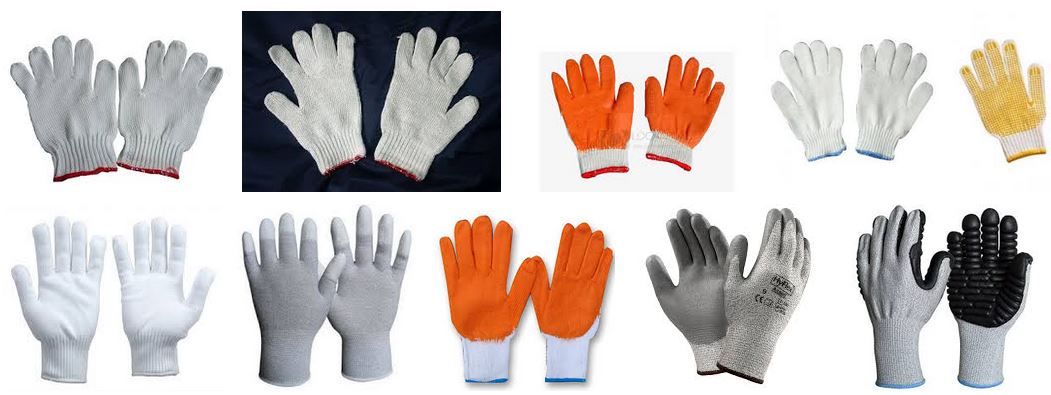On the labor protection equipment market today, there are many types of protective gloves to support all jobs of workers. But it's not easy choosing a pair of gloves needed for your job. Remember, with a limited budget, you can't bring all the gloves home to test which one works.

When choosing work gloves for your job, consider the following types:
- Medical gloves, latex gloves: These gloves protect your hands when in contact with blood or body fluids. They can also help protect you from chemicals depending on the glove material, type of chemical, or duration of contact. The best solution is to replace gloves immediately after contact with chemicals.
- Insulating gloves: This type of gloves is used to protect workers in jobs that have to come into contact with conductors. Gloves should always be checked for errors and its proper resistance information before each shift.
Leather Gloves: Designed for welders. Welder's gloves have a length that covers the worker's sleeve to prevent soot from entering.
- Cut resistant gloves: Depending on the level of danger and the working environment, choose materials such as stainless steel mesh, Kevlar fiber or other materials to resist cuts and have a lighter weight. Stainless steel mesh material is often used when dealing with food because it can be cleaned easily.
- Chemical resistant gloves: This type of gloves is made from many different materials with different wrists and arms in length and thickness. Choose the right glove for you based on chemical resistance information and conditions of use. Refer to the safety data sheet for chemicals to use appropriate gloves.
Heat-resistant gloves: Many gloves can withstand heat, especially those with an extra layer of textile padding. For jobs that involve hot materials or high temperatures such as casting, specialized gloves are essential to keep workers from getting burned.
- Frostproof Gloves There are also many types of gloves that can prevent frostbite, but you need to consider the working environment. Working in a freezer is different than working outside. If you have to work in a cold room, choose a pair of waterproof gloves. For heavy work that could damage gloves, prepare replacement gloves.
Please use the right type of protective gloves for the job, and use them correctly.